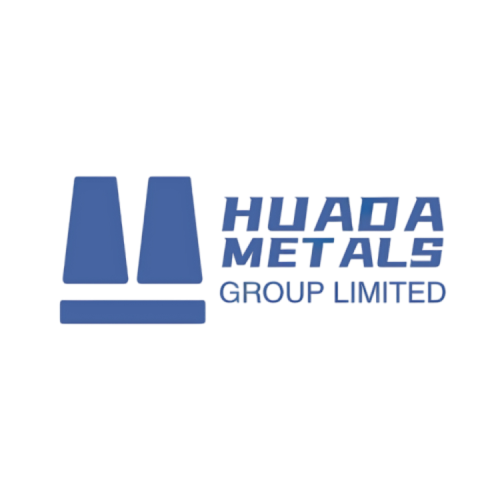Monel alloys, a family of nickel-copper-based corrosion-resistant materials, are renowned for their exceptional resistance to aggressive environments, including seawater, acids, and alkalis. Developed by the International Nickel Company (INCO), these alloys combine the ductility of copper with the strength and corrosion resistance of nickel, making them indispensable in critical industrial applications.
Monel alloys are a group of nickel-copper-based alloys known for their exceptional corrosion resistance, high strength, and excellent performance in harsh environments. Developed by the International Nickel Company , Monel alloys are widely used in marine, chemical processing, oil & gas, and aerospace industries. This article provides a detailed analysis of Monel alloys, including chemical composition, physical & mechanical properties, advantages, applications and so on. HuaDa Metals has the good quality monel alloys in various shapes in China, and the price is suitable and cheap.
Overview of Monel Alloys
Monel alloys’ versatility in form and rigorous quality assurance make them indispensable in critical industries. By combining advanced manufacturing techniques with third-party certifications, producers ensure that Monel components meet the highest standards for safety, performance, and longevity.
For procurement, specify:
- Form: Sheet, bar, tube, etc.
- Grade: Monel 400, K-500, or R-405.
- Standards: ASTM, ASME, NACE, or military specs.
- Testing Requirements: NDT, corrosion, or mechanical validation.
Chemical Composition of Monel Alloys
| Alloy Grade | Nickel (Ni, %) | Copper (Cu, %) | Iron (Fe, %) | Manganese (Mn, %) | Carbon (C, %) | Sulfur (S, %) | Aluminum (Al, %) | Titanium (Ti, %) |
|---|---|---|---|---|---|---|---|---|
| Monel 400 | 63.0–70.0 | 28.0–34.0 | ≤2.5 | ≤2.0 | ≤0.30 | ≤0.024 | – | – |
| Monel K-500 | 63.0–70.0 | 27.0–33.0 | ≤2.0 | ≤1.5 | ≤0.25 | ≤0.010 | 2.30–3.15 | 0.35–0.85 |
| Monel R-405 | 63.0–70.0 | 28.0–34.0 | ≤2.0 | ≤2.0 | ≤0.30 | 0.025–0.060 | – | – |
Key Observations:
- Monel 400 has a balanced Ni-Cu ratio, optimized for general corrosion resistance.
- Monel K-500 incorporates Al and Ti for precipitation hardening, enhancing strength and hardness.
- Monel R-405 contains elevated sulfur (S) to improve machinability.
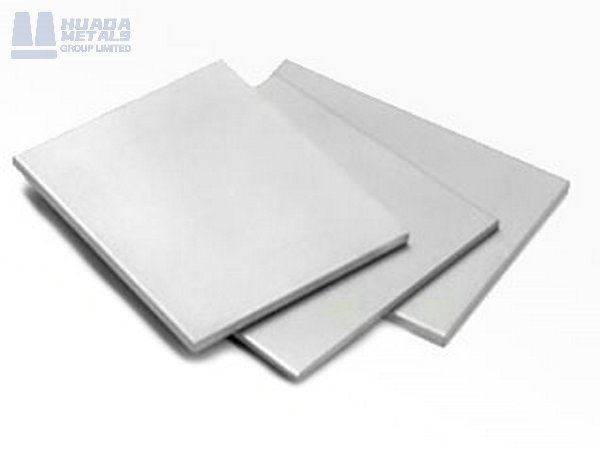
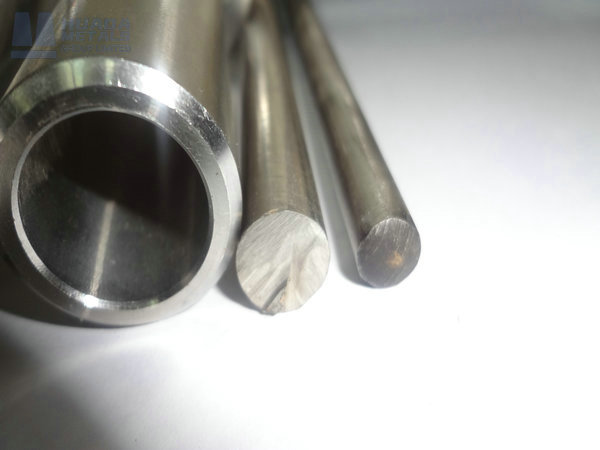
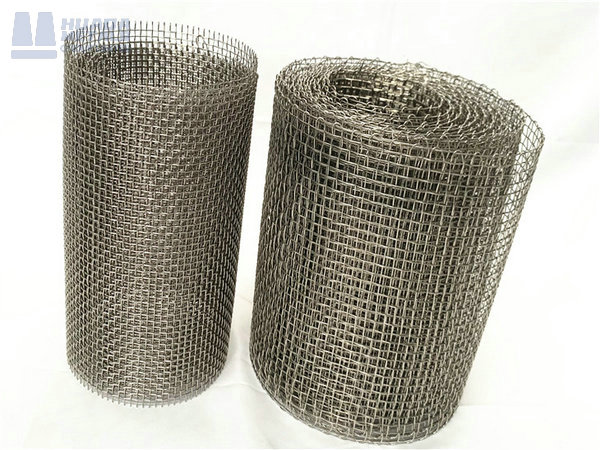
Physical & Mechanical Properties of Monel Alloys
| Property | Monel 400 | Monel K-500 | Monel R-405 |
|---|---|---|---|
| Density (g/cm³) | 8.83 | 8.44 | 8.83 |
| Melting Point (°C) | 1300–1350 | 1300–1350 | 1300–1350 |
| Tensile Strength (MPa) | 480–620 | 760–1030 | 480–620 |
| Yield Strength (MPa) | 170–380 | 550–830 | 170–380 |
| Elongation (%) | 35–50 | 20–35 | 35–50 |
| Hardness (HB) | 135–179 | 240–340 | 135–179 |
| Magnetic Behavior | Non-magnetic | Non-magnetic | Non-magnetic |
Key Observations:
- Monel K-500 exhibits 2–3× higher strength than Monel 400 due to precipitation hardening.
- Monel R-405 matches Monel 400’s mechanical properties but offers superior machinability.
Available Product Forms
Monel alloys, renowned for their exceptional corrosion resistance and mechanical strength, are manufactured in diverse forms to suit industrial requirements. The key product forms include:
- Sheets, Plates, and Coils
- Used for cladding, pressure vessels, heat exchangers, and chemical processing equipment.
- Standard thicknesses range from 0.5 mm to 100 mm, with widths up to 3000 mm.
- Available in hot-rolled, cold-rolled, or annealed conditions.
- Pipes and Tubes
- Seamless and welded tubes for oil & gas pipelines, marine applications, and cryogenic systems.
- Common sizes: OD 6 mm–530 mm, wall thickness 0.5 mm–50 mm.
- ASTM/ASME-compliant grades (e.g., Monel 400, K-500).
- Bars, Rods, and Wires
- Forged or rolled bars for valves, fasteners, pump shafts, and marine propellers.
- Diameters: 3 mm–400 mm; lengths up to 12 meters.
- Wires for welding electrodes, springs, and fasteners.
- Fittings and Forgings
- Elbows, tees, reducers, and flanges for high-pressure piping systems.
- Open-die or closed-die forgings for heavy-duty components.
- Castings
- Investment and sand castings for complex geometries (e.g., pump bodies, valve components).
- Certified to ASTM B564 standards.
- Welding Consumables
- GTAW (TIG) electrodes (ERNiCu-7) and MIG wires for joining Monel components.

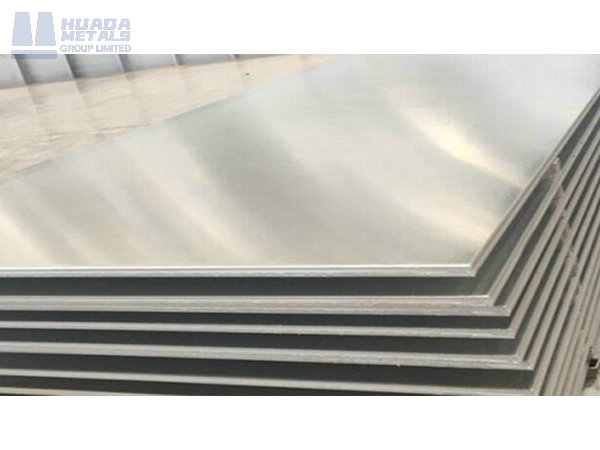
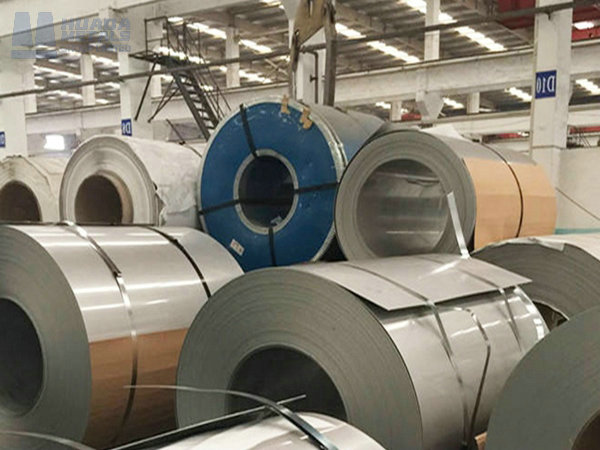
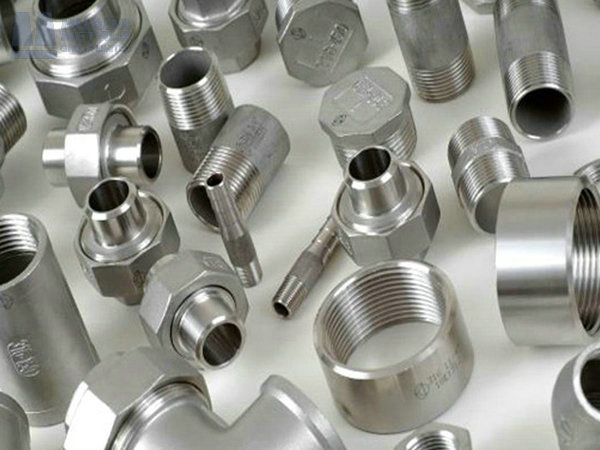
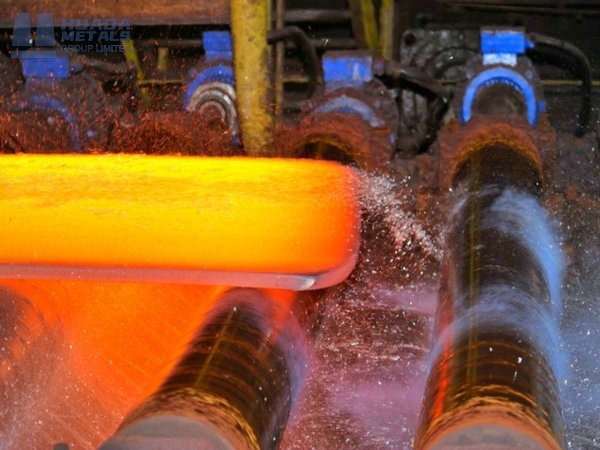
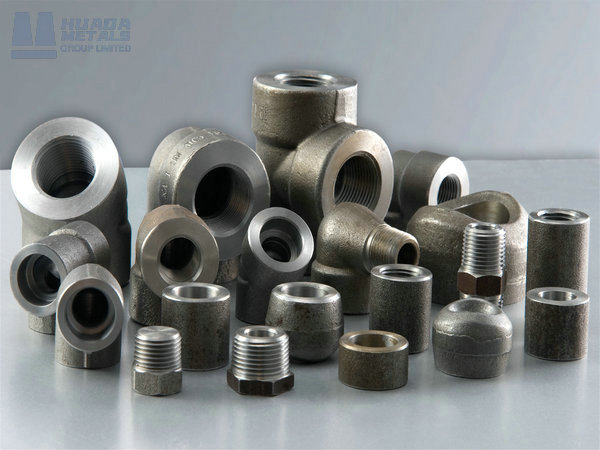
Quality Assurance
Monel alloy production adheres to stringent quality controls to ensure reliability in harsh environments. Key quality measures include:
- Chemical Composition Verification
- Spectrometric analysis confirms compliance with UNS N04400 (Monel 400), UNS N05500 (Monel K-500), and other specifications.
- Tolerance: ±0.1% for major elements (Ni, Cu, Fe, Mn).
- Mechanical Property Testing
- Tensile strength (≥480 MPa), yield strength (≥170 MPa), and elongation (≥35%) verified per ASTM E8.
- Hardness testing (Brinell/Rockwell) for wear-resistant applications.
- Non-Destructive Testing (NDT)
- Ultrasonic (UT), radiographic (RT), and liquid penetrant (PT) inspections for welds and castings.
- Helium leak testing for pressure vessels.
- Corrosion Resistance Validation
- ASTM G28 (HCl/H₂SO₄) and ASTM G48 (ferric chloride) tests for pitting/crevice resistance.
- Salt spray (ASTM B117) and immersion tests in 3.5% NaCl (seawater simulation).
- Certifications and Standards
- ASTM/ASME: B127 (sheets/plates), B163/B165 (tubes), B564 (forgings).
- NACE MR0175/ISO 15156: Approved for sour service (H₂S environments).
- NORSOK M-650: Certified for offshore oil & gas applications.
- Military/Aerospace: QPL-AMS 4675 (Monel 400 bars) and MIL-DTL-23228 (K-500).
- Traceability and Documentation
- Mill test reports (MTRs) with heat numbers, chemical analysis, and mechanical test results.
- Batch traceability via laser marking or barcoding.
- Specialized Testing
- Cryogenic Testing: Toughness at −196°C (liquid nitrogen) for LNG applications.
- High-Temperature Testing: Oxidation resistance up to 600°C (Monel K-500).
- Fatigue Testing: For rotating components (e.g., marine propellers).
Key Properties and Advantages of Monel Alloys
| Feature | Monel 400 | Monel K-500 | Monel R-405 |
|---|---|---|---|
| Corrosion Resistance | Excellent in seawater, HF acid, alkalis | Same as Monel 400, but retains strength at elevated temps | Same as Monel 400 |
| High-Temperature Strength | Maintains ductility up to 400°C | Maintains strength up to 600°C | Same as Monel 400 |
| Machinability | Poor (work-hardens during cutting) | Poor (similar to Monel 400) | Improved (due to sulfur) |
| Weldability | Excellent (AWS ERNiCu-7 filler) | Good (preheat required) | Excellent |
| Cryogenic Performance | Retains toughness at −196°C | Same as Monel 400 | Same as Monel 400 |
Key Takeaways:
- Monel K-500 is ideal for high-stress, high-temperature applications (e.g., marine propellers, valves).
- Monel R-405 is preferred for precision-machined components (e.g., fittings, fasteners).
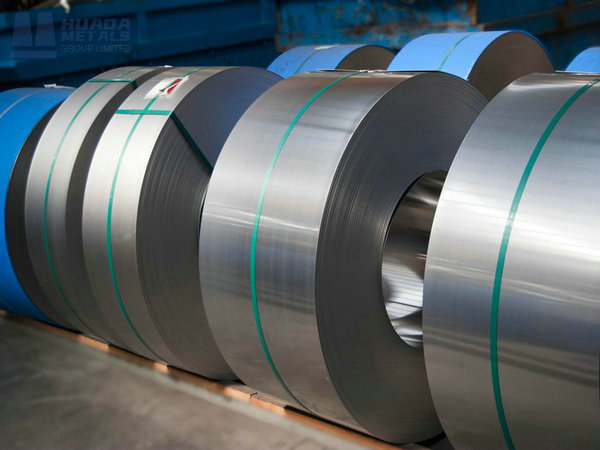
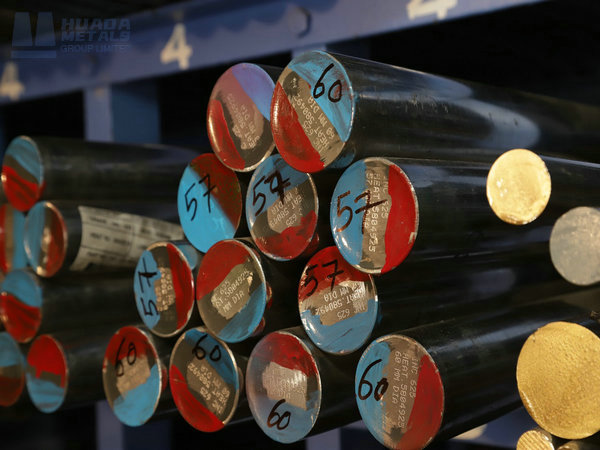
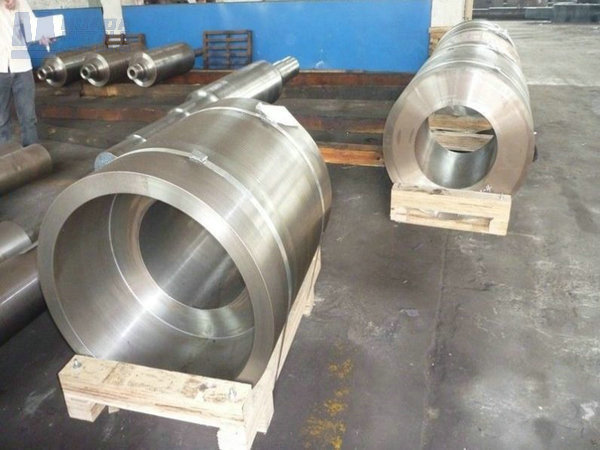
Manufacturing and Processing of Monel Alloys
Cost Considerations
- Monel 400 is the most affordable (~$25–35/kg) due to its simpler composition.
- Monel K-500 costs 30–50% higher (~$35–50/kg) due to Al/Ti additions and heat treatment.
- Monel R-405 is 10–20% pricier than Monel 400 (~$28–40/kg) due to sulfur addition.
High-Performance Use Cases:
- Monel K-500 justifies its cost in deep-sea drilling (where corrosion and wear resistance are critical).
- Monel R-405 reduces machining costs in mass-produced components.
Applications of Monel Alloys
Primary Industries:
Marine Engineering (propeller shafts, pump components)
Oil & Gas (valves, fasteners, downhole tools)
Chemical Processing (reactors, heat exchangers)
Aerospace (turbine blades, fuel tanks)
Power Generation (nuclear reactors, desalination plants)
Monel 400: Moderate cost (~15−15−25/kg), best for general corrosion resistance.
Monel K500: Higher cost (~30−30−50/kg), used where strength is critical.
Titanium: Much more expensive (~50−50−100/kg), only justified in extreme cases.
| Feature | Monel 400/K500 | Stainless Steel 316 | Titanium Grade 2 |
|---|---|---|---|
| Corrosion Resistance | ★★★★★ (Seawater, acids) | ★★★★ (Chloride pitting risk) | ★★★★★ (Best for oxidizers) |
| Strength | ★★★★ (High) | ★★★ (Moderate) | ★★★★ (Very high) |
| Cost | $$$ (Moderate-High) | $$ (Lower) | $$$$ (Expensive) |
| Machinability | ★★★ (Moderate) | ★★★★ (Good) | ★★ (Difficult) |
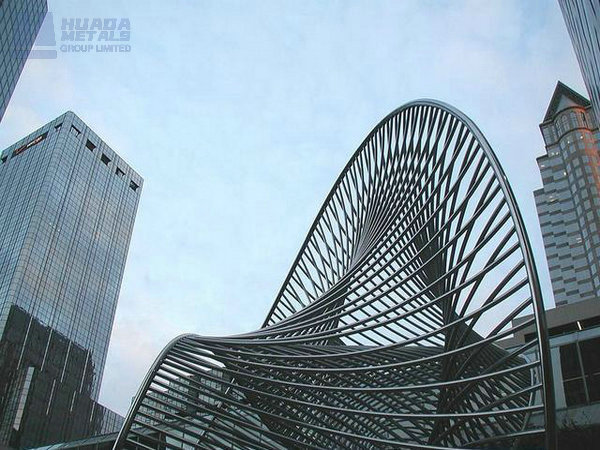

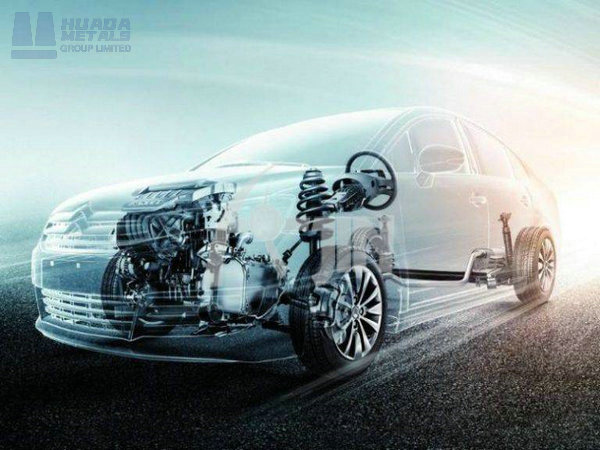
| Industry | Monel 400 | Monel K-500 | Monel R-405 |
|---|---|---|---|
| Marine Engineering | Seawater piping, heat exchangers | Ship propellers, pump shafts | Fasteners, valve stems |
| Chemical Processing | Sulfuric acid plants, distillation towers | Valve internals, agitators | Piping, fittings |
| Oil & Gas | Downhole tubing, desalination units | Drill collars, subsea components | Instrumentation parts |
| Nuclear Power | Uranium enrichment equipment | Control rod components | Reactor coolant piping |
| Aerospace | Cryogenic fuel lines, springs | Aircraft engine components | Instrumentation housing |
In Conclusion
Monel alloys remain indispensable in industries demanding uncompromising corrosion resistance and mechanical integrity. While Monel 400 dominates general-purpose applications, Monel K-500 excels in high-stress environments, and Monel R-405 optimizes manufacturability.
Future Trends:
- Research into chromium/molybdenum additions may enhance high-temperature oxidation resistance.
- Additive manufacturing could reduce waste in complex Monel K-500 components.
By selecting the right Monel grade, engineers can achieve long-term reliability in harsh environments while balancing cost and performance.
Monel alloys (400, K500, R405) offer unmatched corrosion resistance, high strength, and durability in demanding industrial applications. While they are more expensive than stainless steel, their longevity and reliability justify the investment in critical environments like offshore drilling, chemical plants, and marine systems. HuaDa Metals has the good quality inconel alloys and contact us.
